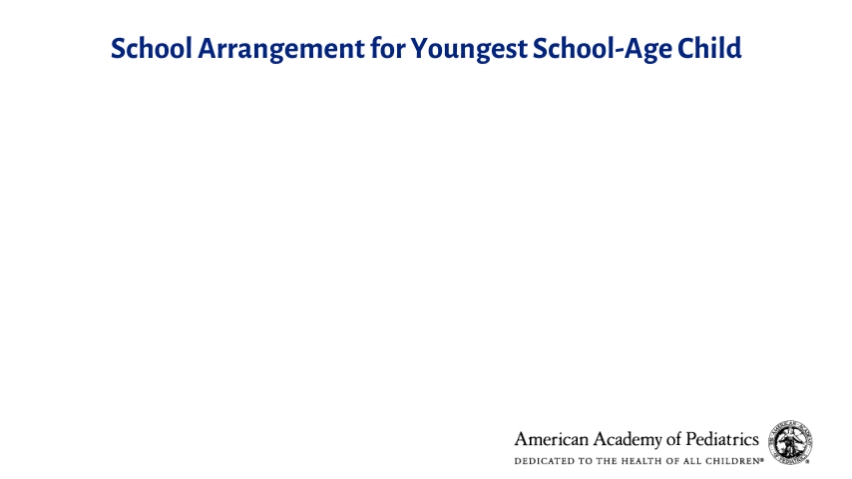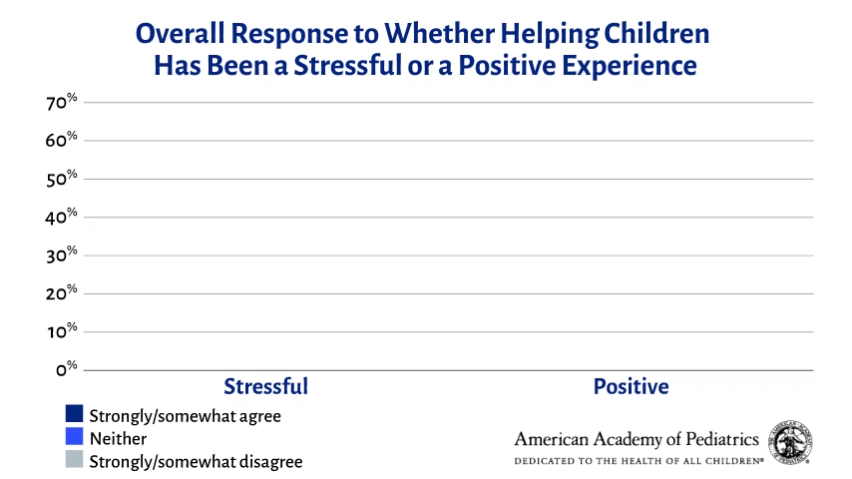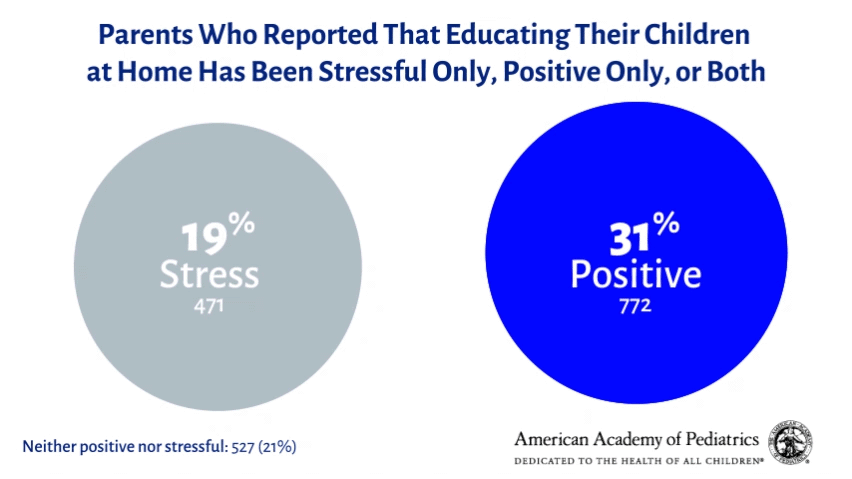People who care for children and families have seen the enormous changes to US family life as well as the adaptability and resilience that families have shown during the coronavirus (COVID-19) pandemic.
Key Messages
-
Most US children have experienced disruptions in their lives during the COVID-19 pandemic.
-
Educational disruption has resulted in increased tension at home in many families.
-
Despite this stress, 60% of families reported they have grown closer.
-
Parents/caregivers who take care of their own life stress in healthy ways have more positive experiences helping their children with school.
-
Those who work with children and families should listen carefully to elicit parents’ own experiences of increased family closeness and/or stress and help parents create more positive experiences.
Children’s lives have been upended. In a national survey conducted in November 2020, 3000 parents responded to questions about their lives since March of 2020, the start of the pandemic. In result, 80% of these families reported major disruptions in their children’s lives. Of families with a child over 5 years of age, 64% reported that schools were closed, and only 29% reported that their youngest school-aged child attended in-person school full-time.

Not surprisingly, this disruption led to considerable family stress. When asked whether helping their children with education had been stressful or caused household tension, nearly half of families (47%) agreed or strongly agreed. This response makes sense – when all the usual family patterns change, it is hard. Especially for families with children in remote school, sharing the home as a central space to learn, work, live, and play is a hurdle many families are working to overcome.
At the same time, most parents set out to create safe and loving homes for their children. When asked whether helping with the same educational responsibilities had been a positive experience for the family, more than half of parents (60%) agreed or strongly agreed. These parents felt that the experience had brought them closer to their child or had otherwise been positive for their household.

One immediate – and incorrect – conclusion would be that the families fall evenly in two distinct and separate categories: some stressed, and others drawing closer together. As shown in the figure below, these categories overlap: most stressed families also reported positive experiences, and nearly half of those who reported positive experiences also reported stress.

Many of us hear reports from friends or colleagues about how stressful, positive, and mixed their experiences have been through the pandemic. These responses show that many families have these same mixed feelings. In practice, these responses from parents suggest that pediatricians and pediatric healthcare providers should inquire further when families share feelings of stress or closeness: Of those caregivers who report stress, most can also identify positive feelings and experiences in their family life. Similarly, many of those who share heartwarming stories about family closeness also might feel stressed or experience household tension.
These survey findings may reflect what has been termed post-traumatic brain growth, a phenomenon seen after natural disasters. People’s brains grow, and their resilience grows, when people recover from disasters. Post-traumatic brain growth results in increased feelings of closeness and meaning in life. Studies show that feelings such as of parents growing closer to their children can promote growth in the brain after adverse experiences. The phenomenon of post-traumatic brain growth shows the mitigating effects of having adequate social connections. Close personal relationships can be used as effective tools in coping with stress. It is important to foster the positive relational growth in families along with monitoring levels of elevated stress.
Impact of parental self-care practice and activities with children
We wondered whether parent self-care or having fun with their children helped parents have positive experiences or grow closer with their children when helping them with education. The survey results suggest that both helped: Parents who handled their stress in healthy ways or had fun with their children reported positive experiences in helping with schoolwork.
Survey respondents were asked about how they handled their own stress. Those who had practiced yoga, meditated, exercised, prayed, or read to relieve their stress were much more likely to report positive experiences helping their children with schoolwork compared with those who had not done these activities (rate ratio, 1.6) and were less likely to report stress (rate ratio, 0.9). There was little difference in either positive or stressful experiences for those who reported less healthy activities such as using alcohol, cannabis, or other drugs.
Having fun with children also helps promote better experiences. Those who reported that they read books with their children, cooked together, told stories, went for walks, played outdoors, watched TV, or played video games with their children were also more likely to have positive experiences with remote learning.
Impact on Children
As children grow and remember these days, the desired outcome for the coming years is that they would recall not only disruption but also experiences of family support. These memories will be woven together—those of growth and positivity along with loneliness and anxiety, and memories of family support interwoven with memories of disruption, anxiety, and loneliness. These childhood memories will last a lifetime; by impressing the importance of family closeness, those who work with children and families can help them become a source of resilience.
Last Updated
03/24/2021
Source
American Academy of Pediatrics